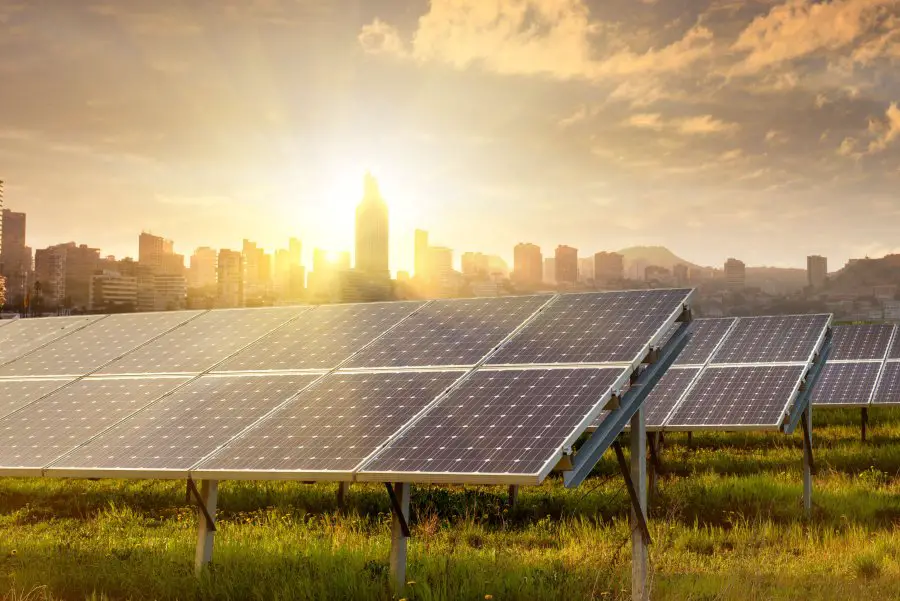Environment Focused Covid-19 Recovery Could Rebuild Economies And Generate $10 Trillion Annually
Tags: opinion

A World Economic Forum report claims that nearly 400 million jobs, as well as economic and food stability can be achieved if a nature-first approach is taken in the post Covid-19 recovery years.
But should business and political leaders choose not to put the environment at the forefront of the recovery efforts, there will be ‘no jobs on a dead planet’ as Alan Jope, chief executive of Unilever and a WEF partner, warned.
Covid-19 has certainly changed all our lives. And as the WEF report states, the disease “has brought the Great Acceleration to a screeching halt.”
The report also makes mention of ‘A Great Reset’ – a concept which emerged during the coronavirus crisis referring to resetting the way in which humans live and how we interact with our environment.
So how will this Covid-19 Recovery ‘Reset’ be achieved?
Along with fighting climate change, the WEF focused its research in three sectors which they believe are responsible for endangering 80% of threatened species: food, land and ocean use, infrastructure and building, energy and mining.
They believe that by re-engineering these same sectors with a nature-led approach, there is massive potential for gain – a total of $10 trillion every year.
Looking at food and land use for example, according to the WEF report, 191 million new jobs can be created if our diets are diversified.
This is based on their findings that 75% of all our food comes from only 12 plant and five animal species. And that animal products take up 80% of farmland yet provide only 18% of calories.
By minimizing meat consumption and increasing fruit and vegetable production, the study’s authors say that $310bn in business opportunities will be created each year by 2030.
Decreasing waste by providing metal silos and crates to keep food from rotting is another solution the report looks at.
The WEF, which brings together world leaders to host the annual Davos summit, also investigated depleting fish stocks and noted that it takes five times more work to catch the same amount of fish today compared to 1950.
A sustainable ecosystem management approach will be crucial. Because if things continue as they are, it is predicted that wild fish stock will decline to the point of costing the industry $83bn – as boats are forced to travel further and fish deeper.
But with improved wild fish management, 14 million jobs and $170 billion in value could be added to the industry.
Pre and post Covid-19 recovery, green energy is the only way to go
Going back a few decades, the problem with green energy was the high cost to produce it. But in the last few years, green energy, such as wind, solar and hydro-electricity, has quickly caught up and even surpassed traditional energy sources such as coal in some countries. In China and India, sustainable energy is forecast to be cheaper than coal by 2021 according to the WEF.
It therefore makes perfect sense for governments and businesses to push full steam ahead with renewable energy sources.
And according to the WEF, this alone has the potential to create 87 million jobs and $3.5 trillion in business opportunities by 2030.
Cities retrofitting to improve energy efficiency could save another $825 billion by 2030, the report claims. The market just for urban green roofs is already $9 billion.
The time for change is NOW
It will of course take great investment – $2.7 trillion per year through to 2030, the report estimates.
Forward-thinking countries, like Costa Rica for example, are already preparing to make the necessary changes.
“We must use the coronavirus crisis as an opportunity to reset humanity’s relationship with nature,” said Carlos Alvarado Quesada, the president of Costa Rica.
“[My country] has shown that the transition to a carbon-neutral, nature-positive, economy brings greater prosperity and jobs. It’s time to mainstream this model.”
Time though is of the essence – if we want to cash in on a sustainable approach to living, the window of opportunity is small.
As the WEF chillingly states: “We are reaching irreversible tipping points for nature and climate. If recovery efforts do not address the looming planetary crises, a critical window of opportunity to avoid their worst impact will be irreversibly lost. Decisions on how to deploy the post-Covid crisis stimulus packages will likely shape societies and economies for decades.”
Read more: COULD URBAN FARMING HAVE THE POTENTIAL TO ANSWER FOOD INSECURITIES IN THE U.S.?

Leave Comment: